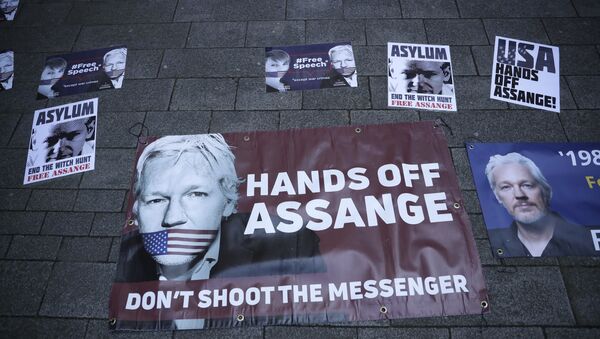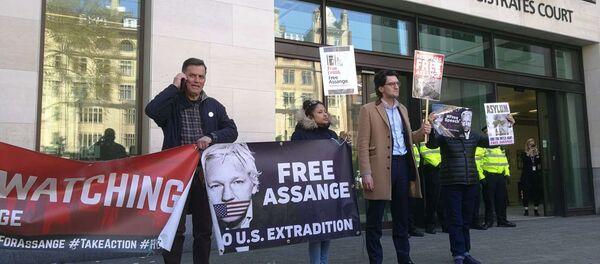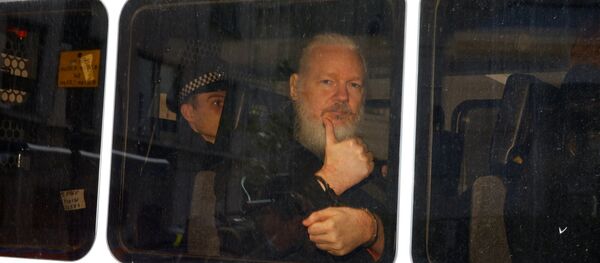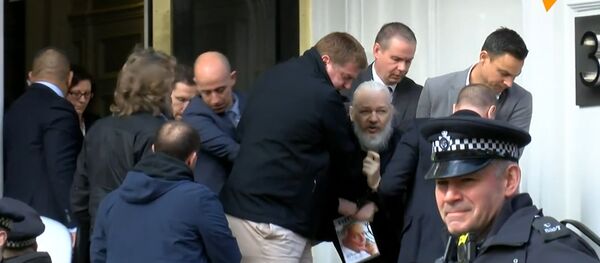The Guardian, the New York Times, the Washington Post, CNN, MSNBC and others treated the material released by Assange and WikiLeaks regarding Iraq and Afghanistan as vital news and frequently put stories from WikiLeaks on the front page — above the fold in the print media and as the top story in broadcast media outlets. They didn't then dispute the authenticity or truth of what WikiLeaks published.
The turn against WikiLeaks by the mainstream media didn't happen all at once, but a shift clearly began as WikiLeaks continued to publish embarrassing documents showing government, political and corporate misconduct during the final years of the Obama administration, the tenure of Hillary Clinton as US secretary of state and during the 2016 election campaign.
The final shift by the mainstream media to explicit hostility and animus toward Assange came when WikiLeaks shared materials that embarrassed Clinton during that 2016 race.
WikiLeaks published those speeches in October 2016, and the world was able to read how Clinton described herself in private as close to Wall Street bankers but "far removed" from ordinary Americans. On October 4, 2016, WikiLeaks released copies of Clinton's Wall Street speeches — and that's when the Guardian, once an eager publisher of WikiLeaks damning information, decided Assange and his organization were actually a "prop" for Trump.
The New York Times on October 7, 2016, likewise tried to soften the blow by suggesting that WikiLeaks was doing the bidding of Russia. In their article, the NY Times writes: "In a statement a Clinton spokesman, Glen Caplin, pointed to the United States government's findings that Russian officials had authorized the hacking and leaking of documents in order to sway the outcome of the presidential election, suggesting that the leak of Mr. Podesta's emails was also engineered by Russian officials determined to help Mr. Trump."
It was during the summer and autumn of 2016, as WikiLeaks published documents from the Democratic National Committee and Clinton campaign chair John Podesta, which included damning exposes of abuse and misconduct by Democratic Party officials, that the mainstream media adopted the position that Assange and WikiLeaks was not publishers of valuable information, but rather a hostile, evil force acting as a proxy of an enemy state.
The mainstream media that once loved Julian Assange and WikiLeaks did a 180-degree turn against this media organization once it embarrassed Democratic Party officials. The same media, acting as a herd — or perhaps a mob would be more precise — asserted a narrative and endlessly repeated without proof that WikiLeaks was nothing other than an instrument of Russian intelligence operations.
Assange, the publisher of one of the most important alternative news sites, is now shackled and chained. Secret grand jury deliberations, endless surveillance, a profoundly biased media narrative — all these factors make a fair trial for him nearly impossible. And the mainstream media whose darling Assange once was, has played a major role in this debacle.
Brian Becker is a host of Loud and Clear on Radio Sputnik.





